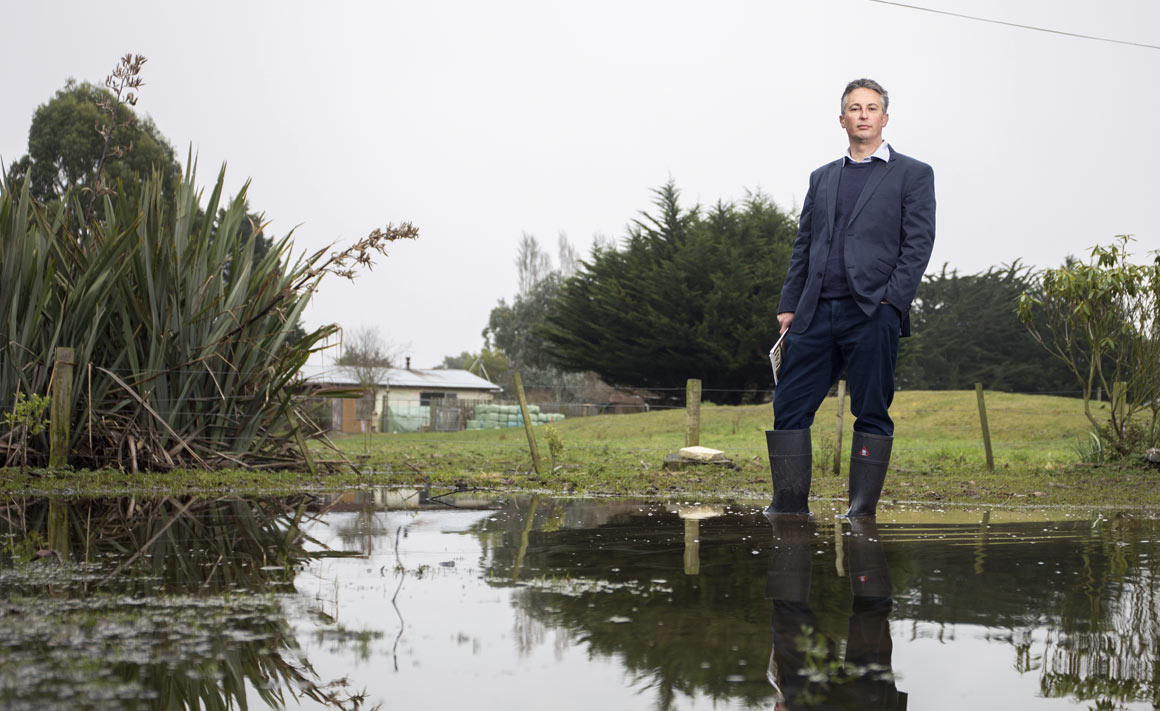
Why are leading finance journals ignoring climate change?
Climate change presents both major risks to the global financial system and an opportunity for investors.
Given the significant influence this has on the world economy, it's therefore surprising - and a little alarming - to find that the leading finance journals are largely ignoring climate, carbon or environmental finance.
Associate Professor Ivan Diaz-Rainey from the Otago Business Schools' Accountancy and Finance Department exposed this irregularity in his 2017 article Stranded research? Leading finance journals are silent on climate change, which attracted considerable on-line interest.
Because general climate change publications are engaging with climate finance topics, Diaz-Rainey thought it natural to expect dedicated finance journals would be too.
But content analysis of 20,725 articles across 21 finance journals showed only 12 related to climate finance over a 17-year period. There was almost no climate finance research on the critically important issues of risk, valuation (including stranded assets) and investment opportunities.
Diaz-Rainey, who is co-director of the Otago Energy Research Centre, says this “remarkable lack of engagement” with climate change-related risks and opportunities has produced a significant global research gap.
“Now, more than ever, we need to understand how environmental impacts influence the public's investment decisions; climate finance research is vital to shape the modern financial system and influence investors.”
Investors are becoming increasingly informed and discerning about climate change policies and are seeking more detail. As an example, ExxonMobil shareholders demanded their company disclose risk information associated with the Paris Agreement's goal of keeping temperature rise below two degrees.
“The share prices of large international oil companies have performed poorly over the last five years – could this be related to the divestment movement and climate risks? Probably in part, but we don't know this for sure,” Diaz-Rainey says.
Critically, the dearth of climate finance studies also means a significant lack of research to inform teaching. This will have a major flow-on effect, and the next generation of finance, investment and business leaders will be under-prepared to tackle climate finance-related issues.
So what is behind the apathy? Diaz-Rainey suggests the journals' collective lack of interest in climate finance is discouraging researchers to initiate studies.
That, in turn, means finance researchers may not be aware of the range of climate finance issues needing investigation, particularly extending beyond the carbon market. Established finance academics may perceive climate finance as a risky research field to tackle, particularly as it may be seen as too political an issue in the US where the leading journals are edited.
“Clearly, meaningful action to understand and address the impacts of climate change on the finance system needs both engagement from academics, and the attention of the leading journals that define the agenda. But until the top journals in finance are receptive to climate finance-related research, the best finance researchers are not going to engage.”
Major global issues that need more research include:
- What impact will rising sea levels have on real estate assets in large cities?
- What financial instruments can be used to hedge carbon risk in investment portfolios?
- How exposed are banks to carbon risk?
- To what degree are investors pricing carbon risk into asset values?
Funding
- Tyndall Centre for Climate Change Research (UK)
